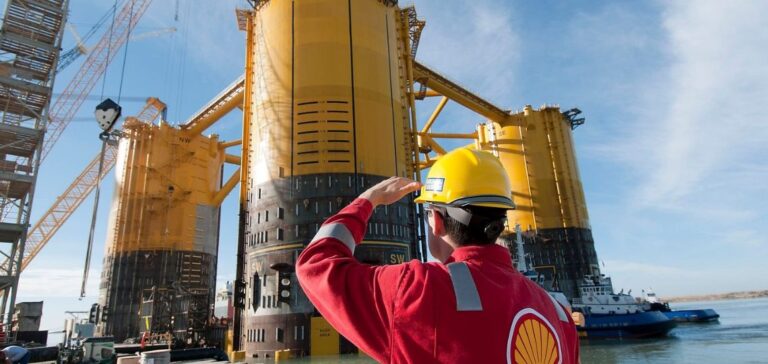Oil and gas giant Shell announced on Friday that its gas sales were expected to show a “marked decline” in its second-quarter results, compared with a “good” first quarter in particular and despite stable production.
Shell anticipates lower production and $3 billion in write-downs
In a press release, the Group also states that its hydrocarbon production is expected to be lower than in the first quarter, due to maintenance in the Gulf of Mexico, Norway, Malaysia and Brazil. He also notes that impairments of up to $3 billion after tax are expected in the second-quarter accounts, to be published on July 27, although they will have “no impact on cash”. The share price reacted little: -0.18% to 2,260.50 pence in early trading on the London Stock Exchange. AJ Bell analyst Russ Mould notes that we can expect results “less impressive than in recent quarters”.
In the first quarter, Shell posted a 22% year-on-year increase in net profit to $8.7 billion. The sector’s majors had posted flamboyant sector results after a record 2022 due to soaring hydrocarbon prices generated by the Russian invasion of Ukraine. Shell also caused further controversy among environmentalists on Thursday, when its CEO Wael Sawan told the BBC that it would be “dangerous” to cut hydrocarbon production, arguing that this could cause a rebound in crude or gas prices and exacerbate the rising cost of living.
Shell revisits crude oil production cuts and considers a U.S. listing
Last month, the oil giant reneged on its commitment to reduce crude production by 1 to 2% a year, and is now forecasting “stable” production until 2030. These announcements were accompanied by a further redistribution of cash to shareholders. An approach designed to “boost Shell’s stock market valuation” and appeal to investors, but which could result in “greater regulatory and political pressure”, says Mr. Mould.
Shell’s CEO has also “indicated that he is open to a US listing, which would be another blow to the London market”, notes Mr. Mould. The other British “major”, BP, also announced in February, alongside record results, a slowdown in its energy transition. On Thursday, BP boss Bernard Looney told a seminar of the Organization of the Petroleum Exporting Countries (OPEC) in Vienna that “we need to invest in today’s energy system, where, even if it’s not popular with some, oil and gas represent 55% of the energy mix. If we don’t invest in it, we’ll have a mismatch between supply and demand”.






















